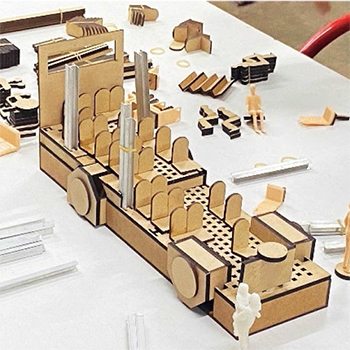Public transportation is pivotal for achieving social and environmental sustainability in rapidly expanding urban areas. Yet, transportation systems frequently overlook the needs of diverse demographic groups due to skewed or incomplete user data, perpetuating issues of transit captivity. This research underscores the importance of incorporating gender perspectives into urban mobility planning. It scrutinizes the Comprehensive Mobility Plan of a Tier II city in India and the implementation of a new bus service, shedding light on the biases inherent in modelling transportation solutions in the consultant-driven processes of technocratic urbanism. By adopting participatory prototyping methods and qualitative data analysis as methods of inquiry, a generative participatory design toolkit was developed. The toolkit is designed to capture the tacit needs of underrepresented demographics, such as women, in the design and delivery of public transportation services, thereby mainstreaming gender in urban mobility plans. The generative prototyping toolkit was developed through iterative development with four pilot workshops, involving 19 design professionals, students, and community members from across the country. Eight participatory workshops were then held with 32 carefully selected representative participants from the same Tier II city, gathering qualitative insights into their commuting needs. The data from these workshops were analyzed using rigorous qualitative data analysis and mapped onto design features in the workshop-created prototypes. Based on the design morphology observed in the prototypes, two bus models were developed and validated by a larger group of community members in an evaluation workshop with 42 women to confirm the findings from the participatory workshops. Finally, a framework for integrating citizen voices into urban mobility plans, through participatory prototyping, is proposed, offering a pathway to more inclusive public transportation.
